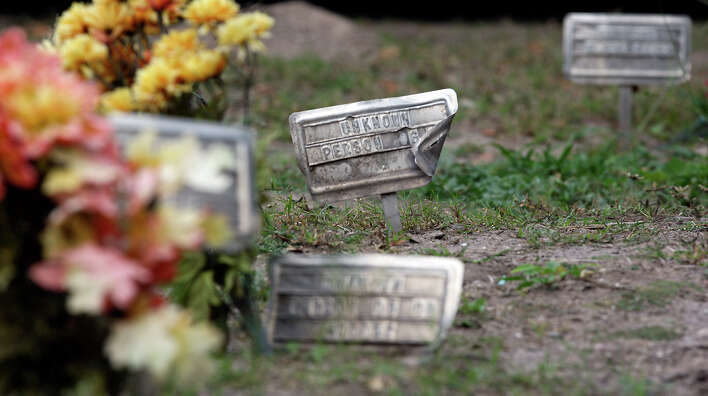
Brooks County officials are developing a protocol for handling investigations of immigrant deaths after a wave of scrutiny from a civil-rights group.
County officials weren’t consistently ordering DNA sampling in cases where immigrants’ remains couldn’t be identified, but that could change under a proposal.
The issue came to the forefront after last year’s record discovery of 129 remains in the county — all thought to be undocumented immigrants who sought to avoid the Border Patrol checkpoint at Falfurrias by trekking through the county’s barren, unforgiving ranches. More than 30 remain unidentified, County Judge Raul Ramirez said.
Members of the South Texas Civil Rights Project and other immigrant advocacy groups said people were being buried in nameless graves, their families left with little hope of finding them because of the lack of DNA sampling. In February the groups presented a letter to county officials and had a news conference on the courthouse steps.
Ramirez, justices of the peace and members of the sheriff’s office met privately Tuesday. All agreed that DNA testing should be done in cases where identification isn’t found with the remains, Justice of the Peace Oralia “Lali” Morales said.
“I want these people identified,” she said. “ ... When you do an inquest, this is what you think about: you think about your son, brother, husband, sister ... I have a 12-year-old son. You think about how it could be one of your family members.”
Morales is writing a draft of the protocols, which she said also aim to address other problems with the death investigations, including transportation to the remote sites where remains are found and accessing the sites, which usually are on private gated ranch property.
The county will continue using the Elizondo Mortuary in Mission to handle the remains, as has been the procedure for years. Now, when a DNA sample is ordered, mortuary staff will provide it to the Anthropology Department at Baylor University in Waco.
That’s where anthropology and forensic science professor Lori Baker coordinates Reuniting Families, an effort to identify and repatriate the remains of undocumented immigrants. The program has resulted in more than 36 identifications in the past three years, but until now mainly has focused on Arizona, Baker said.
Using the Baylor services will protect the overwhelmed county from additional expenses and manpower. Baylor tries to profile each set of remains to determine sex, stature, age and even clues about the person’s country of origin. It also sends DNA to nationwide databases that can help match it with samples from people seeking missing relatives.
The Baylor group even has volunteers willing to travel to Brooks County this spring to begin exhuming unidentified bodies for testing. The volunteers will conduct the work at their own expense, Baker said.
Thursday 7 March 2013
http://www.caller.com/news/2013/mar/07/brooks-county-officials-develop-investigation-in/

0 comments:
Post a Comment